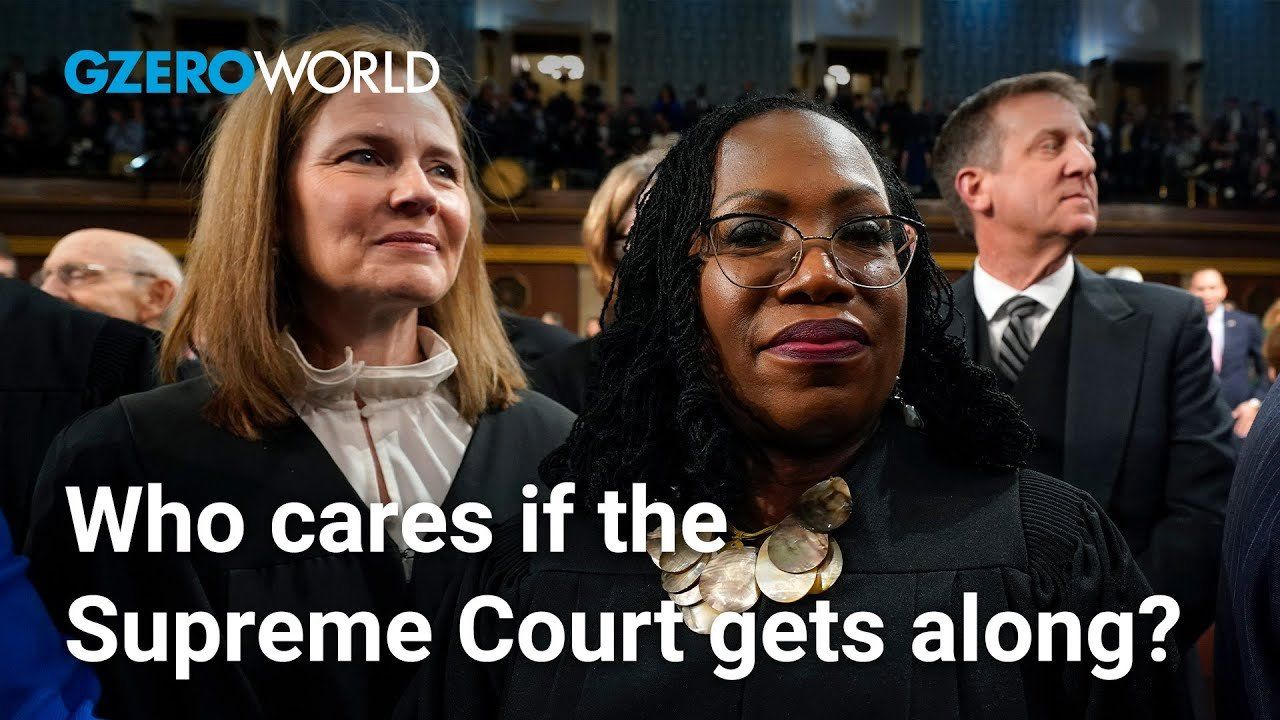GZERO World Clips
Who cares if the Supreme Court justices like each other?

Bazelon: Who cares if the Supreme Court Justices like each other? | GZERO World with Ian Bremmer

Yale legal scholar and New York Times Magazine staff writer Emily Bazelon wants to have faith in the Supreme Court. "I want to have a good faith belief in the justices' approach to these cases” she tells Ian Bremmer in a new episode of GZERO World. But in a wide-ranging conversation in which Bazelon and Bremmer preview the major cases facing the Supreme Court this spring, Bazelon confesses that the past few years have tested her faith.
“After a certain number of cases come out particular ways, you start to feel like cynicism is realism about the Court."
And Bazelon is not alone. Public faith in the Supreme Court is at record lows, thanks to its rightward tilt and ethical questions surrounding the conduct of Justice Clarence Thomas. And that’s a problem, Bazelon says, not just for America but for the justices themselves. “They all have an incentive to protect the institution, the liberals as well as the conservatives. They don't want to see Americans lose total faith in the Court. That's not good for them and their job security and their collective legacy.”
But do the justices themselves get along? Bazelon couldn’t care less. “I'm personally mystified why they think we should care about that. I don't care whether they can be nice to each other when they're having lunch, whether they're collegial. I care about whether American law is going in a direction that makes sense to most Americans.” But at a time when the country itself could not be more divided, could collegiality in the highest court of the land be just the thing that Americans cling to?
A Democrat won Miami’s mayoral race for the first time in nearly 30 years. The Republican defeat will ring some alarms for the party – and their support among Latino voters.
Walmart’s $350 billion commitment to American manufacturing means two-thirds of the products we buy come straight from our backyard to yours. From New Jersey hot sauce to grills made in Tennessee, Walmart is stocking the shelves with products rooted in local communities. The impact? Over 750,000 American jobs - putting more people to work and keeping communities strong. Learn more here.